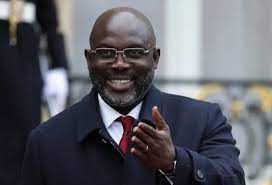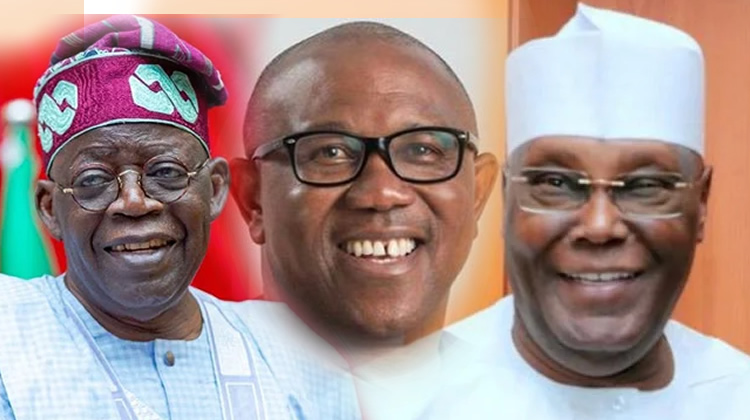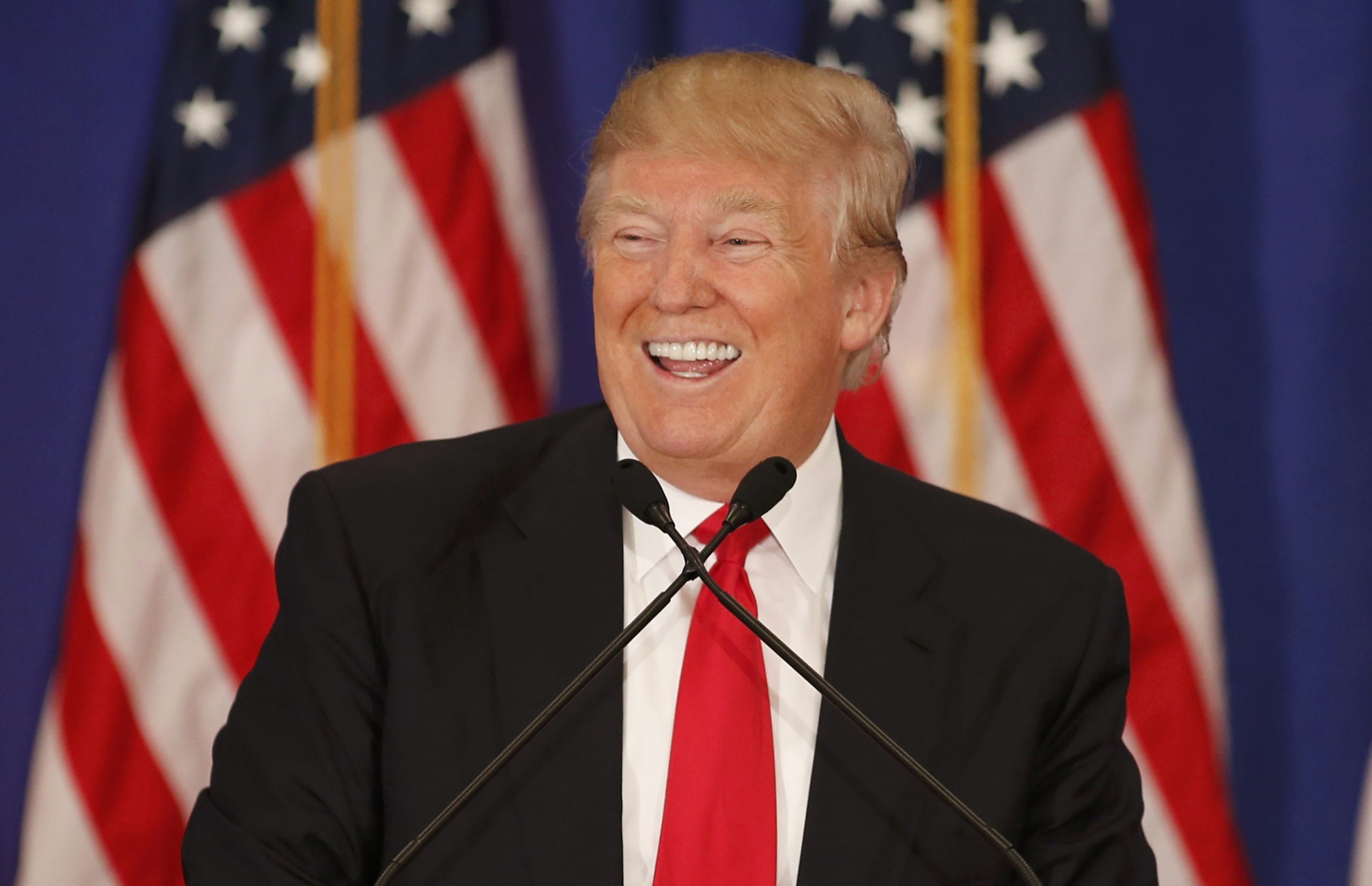Where will the pendulum swing in the petitions at the Presidential Election Petitions Court (PEPC) sitting in Abuja? Will it favour President Bola Tinubu of the ruling All Progressives Congress (APC) or either of the opposition candidates: former Vice President Atiku Abubakar of the Peoples Democratic Party (PDP) and former Anambra State Governor Peter Obi of Labour Party?
It’s the first time – since the return of democracy in Nigeria in 1999 – that four formidable presidential candidates emerged – with three of them running virtually neck-and-neck at the February 25, 2023, poll.
And it’s also the first time that the Judiciary has been sustainably pleaded with to determine the status of the Federal Capital Territory (FCT), Abuja, in regard to election: Whether it’s a specially-designated area or a “State” as stipulated in Section 299 of the 1999 Constitution (as amended).
Atiku and Obi (and Tinubu and Vice President Kashim Shettima) had adopted their final written addresses on August 1, paving the way for the PEPC to reserve judgment to mid or late August or early September, as the petitions were filed in early March, and to span 180 days (six months).
It’s come down to counting the number of days on the finger tips – when the PEPC will deliver its opinion on the declaration of Senator Tinubu as winner of the poll and return as President.
Five of the 18 candidates and their parties that took part in the election had filed petitions against the declaration of Tinubu by the Independent National Electoral Commission (INEC), but two of the petitions were withdrawn, and dismissed.
Two of the remaining three petitions were instituted by Atiku and Obi (and their parties), who emerged first and second runners-up at the voting, querying the declaration of Tinubu on several grounds.
In his final written address on July 22, Atiku prayed to be declared President, based on his claim – which’s disputable – that INEC had admitted he won the election in 21 States. (Going by INEC’s returns, Atiku won in 12 States, and secured 25% in 21 States).
In the alternative, Atiku prayed that the poll be voided and a repeat ordered between him and Tinubu; or Tinubu be disqualified and excluded from a fresh franchise.
Obi not only urged the court to nullify Tinubu’s election, but also to disqualify him as a candidate in the presidential election, and order a new poll in which Tinubu would be excluded.
Atiku and Obi may’ve included being declared President in their pleadings and prayers, but failed to do so in the adoption of their final written addresses – which should serve as icing on the cake.
Whereas the petitions were aimed to restore their alleged “stolen mandates” by Tinubu – in cahoots with INEC – Atiku and Obi acted at the Tribunal like the famed Christopher Columbus, Marco Polo, Mungo Park, and Richard and John Lander looking for “new lands” in a voyage of discovery in the Americas, Asia and Africa.
Atiku and Obi ought to urge the PEPC to declare them as President – as they’d repeatedly claimed that they, and not the former Lagos State governor, won the February 25 poll!
Instead, they asked the court to hold that President Tinubu was unlawfully declared as winner of the election, and order a re-run or cancel the process for a fresh one that should exclude Tinubu.
Even as his election was being questioned in court, Tinubu was inaugurated on May 25 as the 16th President and Commander-in-Chief of the Armed Forces of Nigeria.
Former Borno State Governor and Vice President-elect, Senator Kashim Shettima, was sworn-in as Vice President of Nigeria.
Atiku and Obi hinged their pleadings at the PEPC on “non-substantial compliance” by Tinubu, and “deliberate non-compliance” by INEC with the provisions of the 1999 Constitution, the Electoral Act 2022, and INEC’s regulations and guidelines relating to electronic transmission of results, and in real-time.
Other premises are: INEC’s alleged switching and/or suppression of opposition votes in favour of Tinubu and the APC; Tinubu’s failure to secure 25% of the votes cast in the FCT; and his alleged forgery of biodata, forfeiture for drug-related offence in the United States, and possession of dual citizenship of Nigeria and Guinea.
Any of these allegations could be grounds for cancellation of the election, and ordering a re-run; nullification of the entire process and sanctioning of fresh voting; and disqualification of Tinubu and exclusion from another poll.
Still, of the grounds for litigation by the petitioners and respondents, the most canvassed is the failure of Tinubu (and Atiku) to obtain 25% of votes cast in the FCT – which Atiku and Obi argued is mandatory – plus 25% score in 24 of the 36 States of the federation.
Though the respondents – INEC, Tinubu, Shettima and APC – had rebutted Atiku and Obi’s claims of the FCT having a special status of representing entire Nigeria – and thus incumbent on candidates to secure representative votes there – it maybe the linchpin for the opinion of the Tribunal.
Thus, the verdict of the five-member panel of Justices will be epochal in several respects, due to the peculiar nature of the poll, and the controversy about the FCT.
Pre and post-election, Atiku and Obi made heavy weather about voter intimidation, vote buying, vote suppression, widespread violence, and alleged manipulation of the process by INEC, to favour Tinubu and APC.
But these allegations took the back stage at the Tribunal, as the petitioners focused on what would ordinarily be pre-election issues, to disqualify Tinubu (and Shettima) from contesting in the February balloting.
If Obi’s accused of being “over-ambitious” for wanting to be President when he came third at the poll with 6,101,533 votes – a margin of 2,693,193 votes behind Tinubu’s 8,794,726 votes; how do you situate Atiku’s craving to be President on grounds that Tinubu’s election be voided because he didn’t score 25% of the votes cast in the FCT?
In the INEC declaration, Tinubu scored 90,902 votes (19%), Obi polled 281,717 votes (59%), and Atiku received 74,194 votes (15%). Yet, Atiku prayed the court to remove Tinubu, and declare him winner of the poll.
If Tinubu’s sacked because he failed to secure 25% of the votes cast in the FCT, on what basis would Atiku be declared winner when he scored less votes than Tinubu in the Territory?
This could happen only on one ground: Disqualification of Tinubu from the February 25 presidential election. In that instance, the votes scored by Tinubu would be wasted, and that would put Atiku in good stead to meet the 25% threshold in 24 of the 36 States and the FCT.
It’s a similar scenario that Obi (and LP) has woven about and around 25% in the FCT. Still, Obi stands on a stronger pedestal than Atiku, as he scored 59% of the votes cast in the FCT.
But that won’t catapult Obi to the front row – and the Presidency – unless Atiku’s votes are also discounted, or Obi’s overtaken Atiku if Tinubu’s disqualified, and his votes are wasted.
So, to all parties to the electoral dispute at the PEPC, it’s a guessing game as to where the ruling will go. Yet, the pressure appears more on the petitioners: Atiku and Obi, than on the respondents: the INEC, President Tinubu, Vice President Shettima and the APC, who’ve simply asked the court to dismiss the petitions for lacking merit, and without foundation.
Will the FCT break the ice at the PEPC? Whichever side that carries the trophy may’ve a temporary victory, as the Supreme Court will surely entertain appeals from dissatisfied disputants. The days ahead are anxious and expectant!






